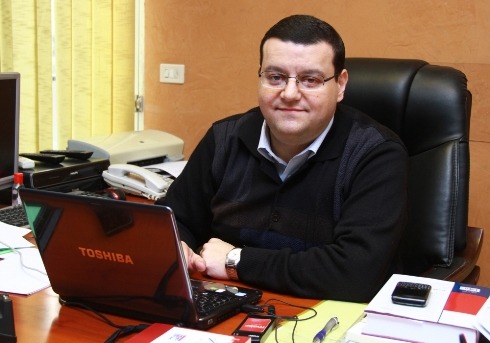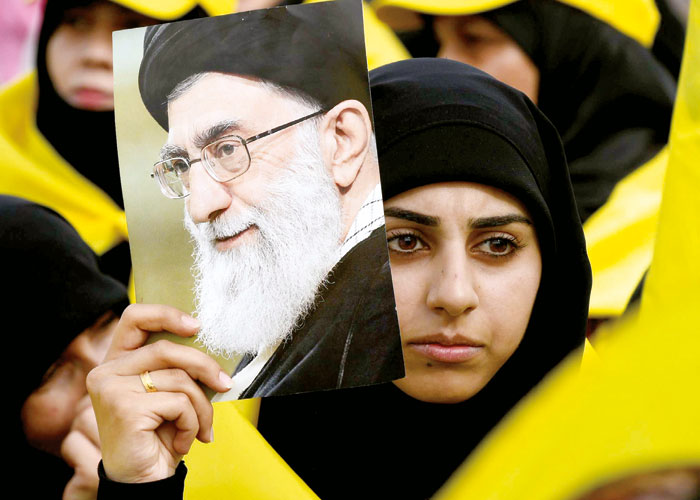Lebanon feels the brunt of rising regional tensions
By Rami Rayess/ The Arab Weekly
24 يوليو 2017

When relations between leading Arab countries grow stormy, few feel the gusts as sharply as the Lebanese. Given its unique make-up, many of Beirut’s domestic players rely upon the patronage of at least one regional power and splits between them rarely augur well for Lebanon’s internal harmony.
The reality is that Lebanon’s political identity and its often-conflicted relationship with the region have long been a source of tension. During the 1950s, culminating in the 1956 Suez Crisis, Lebanon’s political factions were forced to weather the ideological storms of Nasserism. Inevitably, political crisis and, in 1958, armed conflict followed. During the 1970s, the Palestinian involvement in Lebanon, along with the increased militancy of the country’s parties convulsed the domestic political scene, again resulting in protracted civil strife.
The increasing tensions between Saudi Arabia and Hezbollah sponsor Iran, on the one hand, and the inter-Gulf crisis on the other have revived heated discussions among the Lebanese regarding what official position their state should assume with regard to its regional partners.
Hezbollah, one of the strongest factions in Lebanon, is deeply affiliated with Tehran. It has fiercely criticised Saudi Arabia, which is regarded by numerous Lebanese parties, including that of Prime Minister Saad Hariri, as a staunch supporter of Lebanon.
Curiously enough, during the latest political storm to engulf the Gulf, Hezbollah, in line with its Iranian sponsors, elected to defend Qatar after years of bitterly accusing it of supporting the opposition groups the Army of God is engaged against in Syria. Similarly, Turkey, which in Syria has been at odds with Iran, Russia and the Damascus regime, has been at pains to distance itself from Riyadh and support Doha.
Needless to say, the balance of power throughout the region is undergoing an unprecedented period of flux, as alliances that will likely define the nature of relations and conflicts in the near future are experiencing dramatic change.
However, for Lebanon, the dilemma is more immediate. As the Gulf rift continues, the country’s freedom to shift and adapt its foreign policy according to circumstances, long a mainstay of Lebanon’s survival, is being squeezed by the intransigence of its warring regional neighbours.
Moreover, should the rift between Qatar and its rivals continue unaddressed, an empty space within the oil rich countries will lie open, one that the Gulf’s own powerful rivals, Iran and Turkey, would be happy to fill. Unfortunately, there is no reason to suppose that reconciliation may occur soon.

Since the Arab League was formed in 1945, unity on a variety of issues has proved elusive. There has never been any consensus reached on how to tackle the imposition of Israel on Palestinian territory. Neither have many of the Arab League members established lasting economic ties with each other.
Additional external pressure comes on Lebanon over its relations with its closest historical neighbour, Syria. For years, Lebanon has been home to 1.5 million of Syria’s refugees, yet it has failed to reach any kind of consensus as to what it should do with them or what its relations should be with their country of origin. The presence of such a large number of refugees among an indigenous population of 4 million has placed incredible strains on its economy and infrastructure. However, despite urgent calls to engage with the regime in Damascus, relations remain frozen and Lebanon’s open-door policy remains as it has been since the outbreak of hostilities in 2011.
Lebanon has set out impressive ambitions for itself, ones apparently encapsulated within its adoption of a new system of proportional representation. However, as long as it continues to be mired within the present concerns of its neighbours and sponsors, its future remains uncertain.
 عن أمل جنبلاط المتجدد: لبنان يستحق النضال
عن أمل جنبلاط المتجدد: لبنان يستحق النضال
 صحافيون أم عرّافون!
صحافيون أم عرّافون!
 ماذا يجري داخل أروقة بيت الكتائب المركزي؟
ماذا يجري داخل أروقة بيت الكتائب المركزي؟


 عن الخرائط التي تُرسم والإتفاقات التي تتساقط!
عن الخرائط التي تُرسم والإتفاقات التي تتساقط!
 “الإنحراف في الحياة”/ بقلم كمال جنبلاط
“الإنحراف في الحياة”/ بقلم كمال جنبلاط
 هاشتاغ #صار_الوقت يحل أولاً في حلقة جنبلاط
هاشتاغ #صار_الوقت يحل أولاً في حلقة جنبلاط
 طاولة نقاش عن أزمة الصحافة في جامعة AUST
طاولة نقاش عن أزمة الصحافة في جامعة AUST
 عبدالله: ليظهر لنا وزير مكافحة الفساد حرصه في صفقات البواخر والفيول
عبدالله: ليظهر لنا وزير مكافحة الفساد حرصه في صفقات البواخر والفيول
 عبدالله: غريب أمر وزارة مكافحة الفساد!
عبدالله: غريب أمر وزارة مكافحة الفساد!

 Comment to Uri Avnery: How Sad What Is Looming Ahead
Comment to Uri Avnery: How Sad What Is Looming Ahead
 “Not Enough!”
“Not Enough!”
 … لمن لم يقرأ يوسف البعيني/ بقلم وسام شيّا
… لمن لم يقرأ يوسف البعيني/ بقلم وسام شيّا
 كمال جنبلاط في مولده الأول بعد المائة: تعاليمه وأفكاره ما زالت الحلّ/بقلم عزيز المتني
كمال جنبلاط في مولده الأول بعد المائة: تعاليمه وأفكاره ما زالت الحلّ/بقلم عزيز المتني
 رئيس حزب/ وليس (… سابقاً)/ بقلم د. خليل احمد خليل
رئيس حزب/ وليس (… سابقاً)/ بقلم د. خليل احمد خليل
 التوازن السياسي في لبنان
التوازن السياسي في لبنان
 لبنان… مشاريع انقلابية مؤجلة
لبنان… مشاريع انقلابية مؤجلة
 جنبلاط وحَمَلة أختام الكاوتشوك
جنبلاط وحَمَلة أختام الكاوتشوك
 Le Liban est un symbole de tolérance
Le Liban est un symbole de tolérance
 Our Automated Future
Our Automated Future
 The True Origins of ISIS
The True Origins of ISIS
 Les Misérables vs. Macron
Les Misérables vs. Macron
 عذراً أيها المعلم/ بقلم مهج شعبان
عذراً أيها المعلم/ بقلم مهج شعبان
 رساله الى المعلم / بقلم ابو عاصم
رساله الى المعلم / بقلم ابو عاصم
 إلى روح القائد والمعلم كمال جنبلاط/ بقلم أنور الدبيسي
إلى روح القائد والمعلم كمال جنبلاط/ بقلم أنور الدبيسي
 أسرار وعناوين الصحف ليوم الجمعة 14 كانون الاول 2018
أسرار وعناوين الصحف ليوم الجمعة 14 كانون الاول 2018














